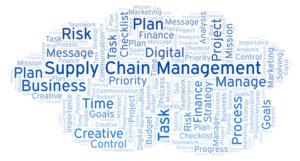 Much has changed since the diminished role of the full-service agency in the 1980’s. Decoupling and specialization initially swelled the size of marketers’ agency networks, then the meteoric rise of digital and social media further expanded the ranks of specialist agencies and gave birth to the adtech and martech industries. In the end, all served to significantly expand the advertising supply chain, adding complexity and cost.
Much has changed since the diminished role of the full-service agency in the 1980’s. Decoupling and specialization initially swelled the size of marketers’ agency networks, then the meteoric rise of digital and social media further expanded the ranks of specialist agencies and gave birth to the adtech and martech industries. In the end, all served to significantly expand the advertising supply chain, adding complexity and cost.
A biproduct of these events is downward pressure on marketers’ working dollars, as an increasing portion of the budget is funneled to agency fees and underwriting the growing costs of advertising related technology. Thus, a key challenge faced by marketers today is evaluating how to reduce supply chain related fees as part of their efforts to improve efficiencies, drive revenues and build strong brands.
Strategies for addressing this challenge include; consolidating supply chain partners, reducing the number of agencies and intermediaries in the roster, and establishing distinct roles and responsibilities among agency and intermediary partners to eliminate redundancy and clarify deliverable and KPI ownership. Along the way it’s important to seek better alignment between agency remuneration programs, resource allocation needs and business outcomes.
Scrutinizing and monitoring supply chain partner performance, in the context of the client/ agency agreements that govern the relationships, is a necessary ingredient for successful implementation for each of these strategies. Establishing a formal marketing supplier accountability program also mitigates supply chain related risk while providing a foundation for improving supply chain efficiency.
Unfortunately, too often there is no clear organizational “ownership” around marketing supply chain accountability. While marketing clearly serves as the relationship management lead with suppliers, their principal focus is and should be on brand building, customer acquisition and demand generation. Therefore, it may be unrealistic to expect marketing executives to serve as the “principal in charge” for supplier accountability. This is particularly so considering the number and nature of obligations that comprise an accountability program, including but not limited to the following:
- Agency contract compliance reviews
- Agency remuneration reviews
- Annual agency fee reconciliations
- Annual marketing supplier billing reconciliations
- Annual 360-degree supplier performance evaluations
- Supplier performance reviews
- Supplier pricing reviews and competitive bidding
- Supplier contract and SOW reviews
Based on experience, we firmly believe that involvement and support from corporate groups such as; Procurement, Finance and Internal Audit are critical to marketing supply chain optimization. Involving individuals and leadership from these groups to shoulder responsibility for the accountability program is important to drive supply chain efficiency – or at the very least these individuals can support Marketing’s efforts, ease Marketing’s burden, and bring cross-functional perspectives to bear.
At the end of the day, there are two overriding goals for any marketing supply chain optimization program:
- Strong supplier relationships
- Optimized use of corporate marketing budgets
In a growing, complex, rapidly changing market sector which represents over $1.3 trillion in global marketing and advertising spend (source: PQ Media) the need to embrace supply chain optimization has never more clear, nor the associated benefits more meaningful.
